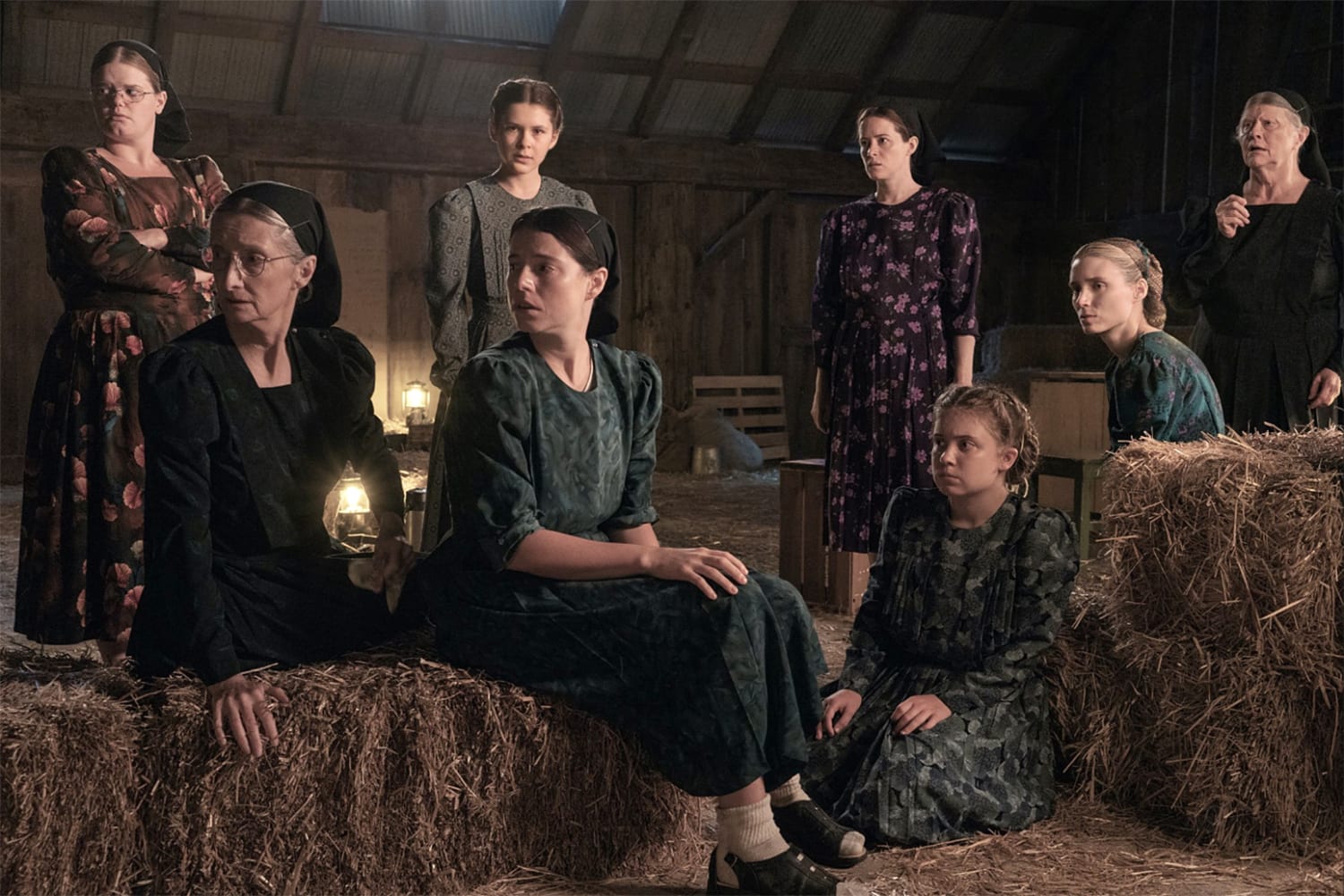[ad_1]

“Your story will be different than ours.” Those are the final words of Sarah Polley’s film “Women Talking” and they succinctly sum up the film’s challenges, as well as its hopes. Polley tries to point a way out of a history steeped in patriarchy and violence. But how do you pour old words into a new narrative? The film’s answer is not entirely satisfying. Still, there’s an exhilaration and a power in even asking the question — especially in asking it in such a blunt, unflinching way.
The film’s answer is not entirely satisfying. Still, there’s an exhilaration and a power in even asking the question
The movie, based on a 2018 novel by Miriam Toews (in turn based on a true story), and is set in 2010 in a fictional Mennonite colony. A handful of men in the community have been raping the women for years by sneaking into their rooms at night, stunning them with animal tranquilizers and assaulting them. The men told the women that they were being attacked by ghosts or demons. After a couple of girls catch one of the men in the act, he identifies the others, and they are taken off to jail in the town. The other men in the colony also leave to try to come up with bail money.
While they are gone, the women in the community, almost all of whom have been assaulted, try to decide what to do next. The men have told them that they must forgive the rapists or be exiled. After an inconclusive vote, a small council gathers to decide whether to stay and fight or leave.
The bare outlines of the plot could be fit into a number of standard Hollywood genres. But the movie carefully and even systematically refuses to embrace any of them.
The default for many movies centering women is still romance. “Women Talking” does offer a likely suitor in August (Ben Whishaw), a schoolteacher newly returned to the community who is very in love with Ona (Rooney Mara). Ona is pregnant with her rapist’s child, though, and her focus on protecting her baby and her community takes precedence over her ambiguous feelings for August. In this story, at least, patriarchy can’t be healed through love.
Neither does the film lean into paranoid supernatural thriller tropes, a la “Rosemary’s Baby.” The men tell the women demons are responsible for assaulting them, but that’s a lie. “Women Talking” starts after the otherworldly pretense has already exploded. It’s not a movie about mysterious harm but about dull, very explainable harm that has been already done.
The film could also be about justice — either via violent revenge or through the legal system. But while one woman, Salome (Claire Foy) does try to attack the rapist at the very beginning of the movie, she’s stopped, and that’s the extent of retaliatory violence we witness. Similarly, the film sidesteps courthouse drama. The men take legal action, but it’s all off-screen. No lawyers offer answers here.
Instead, most of “Women Talking” is, like the title says, women talking. The ensemble cast — including Mariche (Jesse Buckley), a battered wife, and Ona’s mother Agata (Judith Ivey) — sit in the barn and try to figure out what to do. They discuss their anger, their fear, their betrayal, their faith. They argue over what they owe their brothers and sons and husbands and what they owe their daughters and themselves. They talk about whether they can, or should, forgive the men who have harmed them.
Instead, most of “Women Talking” is, like the title says, women talking.
The stagey set-up doesn’t just refuse to use genre tropes; it also violates many of the critical expectations that signal “quality” to critics and moviegoers. The characters don’t have the clever quirks of the indie film. Nor is there an Oscar-bait performance rich in ambiguous nobility and self-sacrifice. The performances are emotional, but the characters aren’t exactly there to emote. Instead, they offer didactic perspectives; important moments in the movie feel more like Platonic dialogue than like drama. If violence is wrong, if murder is wrong, then what is the moral choice? How do we pursue the good?
The movie’s insistence on telling rather than showing can feel constraining, irritating and deliberately obvious. August is told that it is not his place to speak not once, but several times. A trans character loses his voice. Greta (Sheila McCarthy) illustrates her points with folksy anecdotes about the behavior of her horses.
But the demand for complexity can also be a demand to tell stories in a familiar way that justifies and excuses. Trained on old stories, we want to hear that the status quo can fix itself through love, through the law, through violence. We want to hear that the status quo is tangled, and that we should appreciate the knots for their aesthetic intertwining. But as a number of the women point out with some bitterness, sometimes nuance can distract from the main issue: how to help survivors.
The answer, not surprisingly, is complicated. But despite some missteps, it’s hard not to admire the movie’s stubborn courage. Polley refuses to give audiences the narrative they expect or want. If the result is uncomfortable — well, finding a new trail, and a new life, isn’t always easy or painless. “Women Talking” insists, though, that it’s worth doing.
[ad_2]
Source link
